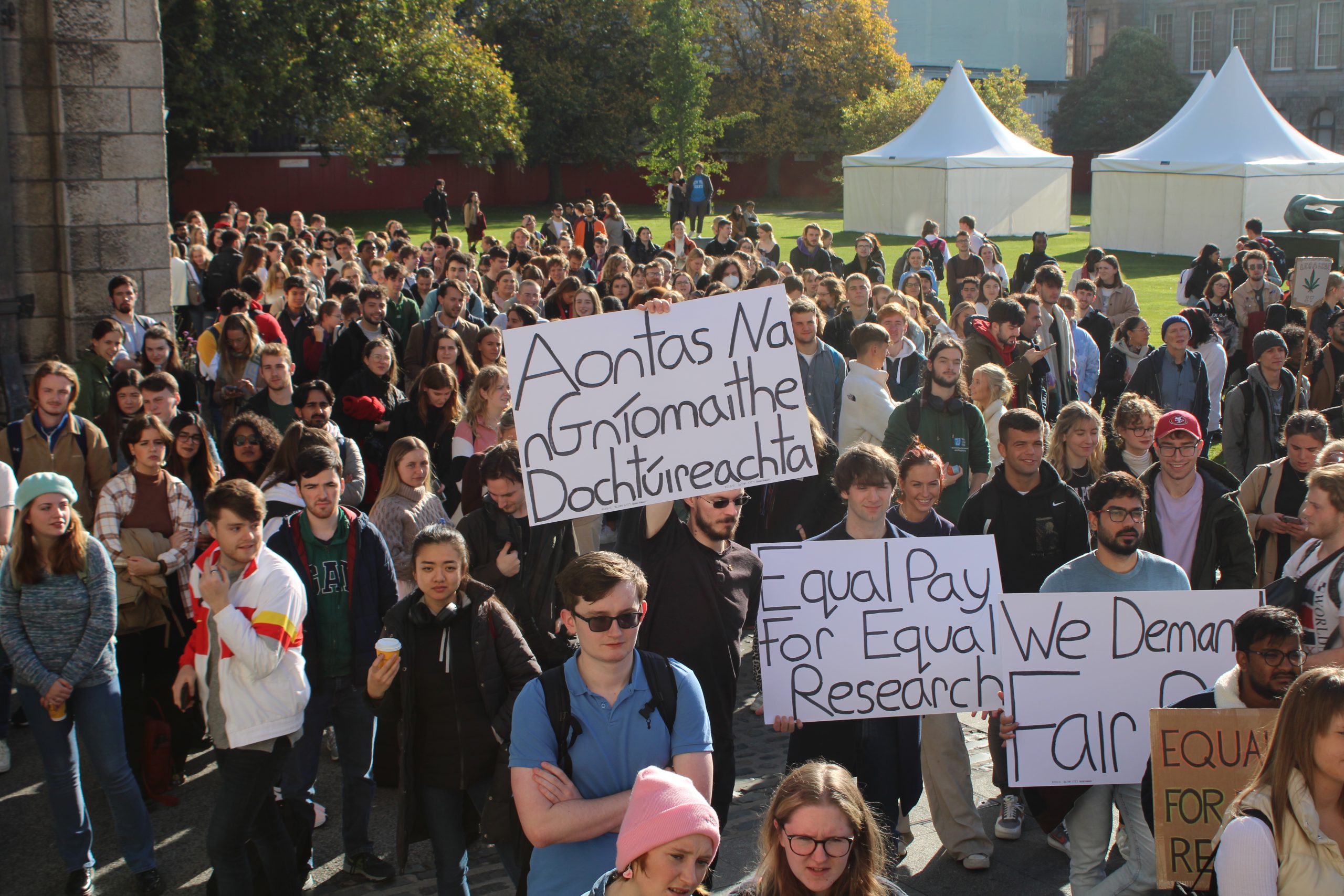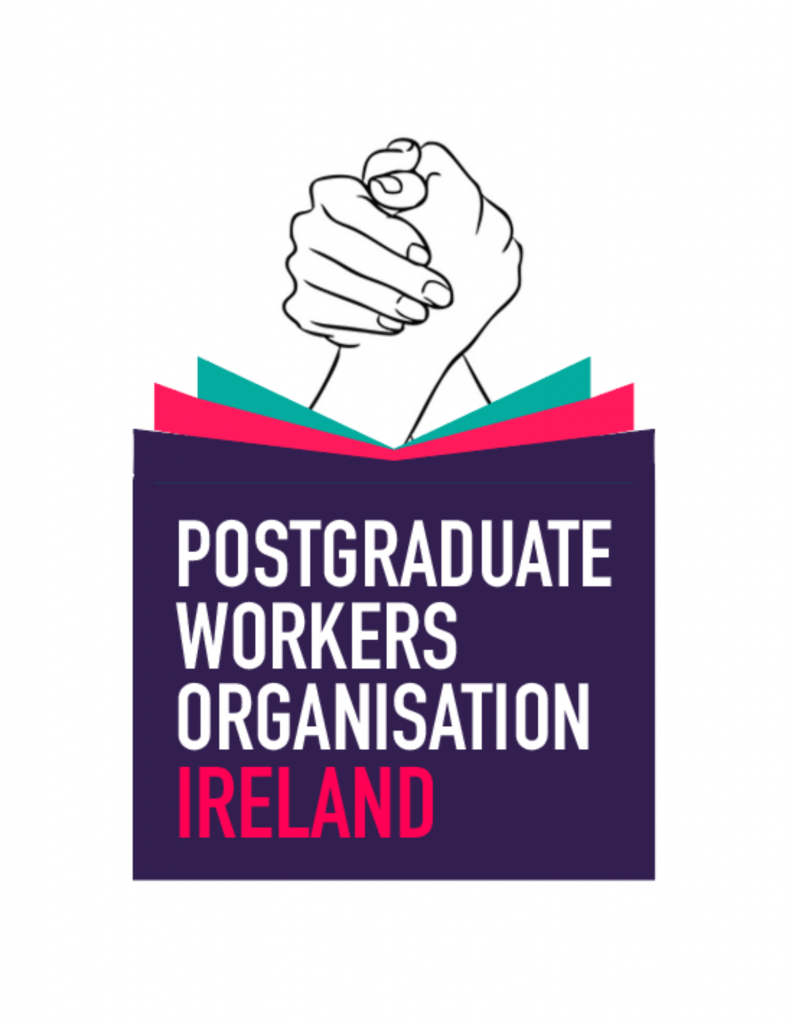By Steph Collins and Naoise McManus
21 October 2023
Steph Collins and Naoise McManus are both socialists, students and members of S4C (Students4Change) at Maynooth University. Steph Collins is a member of CATU and organiser with S4C Maynooth. Naoise McManus is a member of the Socialist Party and also involved with S4C.
In recent weeks the Maynooth University executive staff have come under fire over their recent decision to appoint internal members to the governing authority rather than elect them as has been the case in years gone by. The provision for appointing internal members to the governing authorities of universities was included under part 10 of the Higher Education Authority Act 2022 which amends the previously applicable 1997 Universities Act.
The change that has sparked the most controversy is that of the composition of Governing Authorities. In the 1997 Act, Governing Authorities could range in size between twenty and forty people, and internal members who sat on the authority had to be elected by their peers. The 2022 Act slashes the permissible size of governing authorities from a potential forty to a set nineteen. While this change has proportionally increased student representation, allowing for three elected students of nineteen rather than a potential three elected of fourty, the act notably undermines the democratic element of governing authorities, allowing for 5 internal members of academic staff to be “elected or selected for appointment”. Maynooth University has taken the controversial decision to exclusively select these members, going against the grain as other HEI’s have decided to maintain the democratic election process.
Although the Act was at various stages criticised for its potential to undermine the academic autonomy of HEI’s, Maynooth’s decision to appoint rather than elect internal members of governing authority cements this concern in reality, materially undermining the autonomy of the academics that comprise the institution.1
Profit motivesMaynooth University’s president Professor Eeva Leinonin is no stranger to controversial decisions. In her previous post as Vice-chancellor of Murdoch University in Perth, Australia, her leadership was responsible for axing jobs, and in some cases even whole departments, and reallocating research time to teaching time.2 Unions criticised such decisions for their short-sightedness, even accusing the institution for using the COVID-19 crisis as a cover to cut research time.3
The shift in focus to more teaching hours was presumably a bid to increase student numbers thereby increasing revenue – student fees account for a large portion of university revenue, especially international students, which Leinonen’s previous university was accused of targeting4, who generally pay higher fees than local students. According to documents shared with Aontacht, a similar growth strategy is expected to be implemented in Maynooth with the launch of its 2023-28 strategic plan in October. Student fees accounted for just under half (45%) of total income for the university.5
In spite of the push for increased revenue, for the past 3 years, Maynooth university has produced a considerable budget surplus (€6.389m in 2019-20, €13.199m in 2020-21, and €14.227m in 2021-22). The Bursar maintains these surpluses were the result of reduced operating costs during the COVID-19 pandemic. However, they have also been attributed to “ongoing prudent financial management which will continue to 2022-23 and thereafter.” This prudent financial management essentially constitutes austerity being enforced on the academic community in Maynooth. The choice to appoint rather than elect internal members to governing authority can be read as a deliberate measure taken to weed out dissenting voices in an attempt to avoid a repeat of the Murdoch whistleblower scandal. In an interview with Aontacht, Bana Abu Zuluf, a researcher and a member of the PWO national committee claimed the decision taken to appoint staff may allow the University Executive to create a “controlled opposition” and constitutes a “breach of trust”.
Another researcher interviewed by Aontacht indicated a concern regarding how humanities will be affected by the decision. “If the university were to go for a more profit-driven model and not be [governed] by people elected within the university then you could have a situation where subjects like STEM are prioritised while arts and the humanities are left by the wayside”. The same researcher noted there was widespread “concern” when the current university president was appointed given her record in Murdoch University. Although thus far there has been no major restructuring, the abolition of governing authority elections indicates a harrowing direction for the university.
Cause for concern
Staff are afraid to speak out given Professor Leinonin’s litigation record – in 2019 Murdoch university took the decision to sue a whistleblower who publicly questioned the university’s practise in recruiting international students, a move that was criticised by prominent Australian academics as setting a “dangerous precedent”, severely curtailing academic free speech. As such, a recent petition circulated by Maynooth branch of IFUT,6 the Irish Federation of University Teachers, and the primary union for academic staff in the university, can be seen as all the more valourous.
In a conversation with Aontacht, Professor Peter Coles, a member of IFUT and prominent academic within the Theoretical Physics Department outlined some of his concerns. ”I am worried about the growing gap there is between the university executive […] and the rank and file of the academic staff who actually do all of the teaching and research here,“ he stated. “It seems that we’re being systematically excluded from the process and things are being announced through the press that have never been [communicated internally] … They seem to be separating themselves deliberately, just deciding things”.
We reached out to President Leinonin’s office for comment early last week but they failed to get back to us.
Bana Abu Zuluf echoes Coles’s concern; she believes that the existing feedback mechanisms between student & workers and the University Executive are “all tokenistic,” going further to state “I don’t believe there is an interest to create a relationship [with researchers and workers in the university] […] with the selection process it’s going to be even more distant”.
Further action
The issue of staff elections to governing authority is not likely to go anywhere anytime soon. When prompted whether we can expect further action from IFUT, Professor Coles referenced an article in the Irish Independent 7 outlining that the university may back down; however he went on to state “for me it would be unsatisfactory if they weren’t entirely elected […] Just because a decision is lawful doesn’t mean it’s the right thing to do”. Abu Zuluf noted that the PWO has solidarity with the staff unions currently opposing the decision, further calling for all student unions “to publicly support staff unions in their fight because this is not just about saving democracy, it’s about saving workers’ rights. This is something that will affect us all in the future”.
Given the level of discord between those making the decisions and those whom the decisions affect, it’s safe to say that further action is a necessity. The conditions of staff, students and researchers depend on it.
References:
- https://www.irishtimes.com/ireland/education/2022/10/02/trinitys-provost-warns-new-bill-could-threaten-university-autonomy/
- https://www.watoday.com.au/national/western-australia/murdoch-uni-spends-millions-on-pay-rises-and-new-logo-as-staff-circle-the-drain-20210524-p57und.html
- https://www.timeshighereducation.com/news/murdoch-accused-using-crisis-cover-cut-research-time
- https://www.theguardian.com/australia-news/2019/oct/22/fifty-top-professors-condemn-pursuit-murdoch-university-whistleblower-schroeder-turk
- https://www.maynoothuniversity.ie/sites/default/files/assets/document//Signed%20MU%20Consolidated%20Financial%20Statements%2021-22.pdf
- https://my.uplift.ie/petitions/defend-democracy-at-maynooth-university
- https://www.independent.ie/irish-news/maynooth-university-to-review-controversial-selection-proposal-for-governing-authority/a1682821435.html




A thorough review of the recruitment and profiles of newly recruited staff to the office of the President should be undertaken to ensure that their skills and competencies meet the needs of the university. PR and communications roles should be minimised to maintain the ethos and integrity of MU. It would be important that new staff come from a teaching background. It would be interesting to understand if the office of the President has sought support from a PR company to manage the current crisis.
Just to note that academic voices are protected, they are free to speak out. Administrative staff do not have the same protections and it can be held against us. This decision by MU’s senior management affects us all and needs to be stopped.